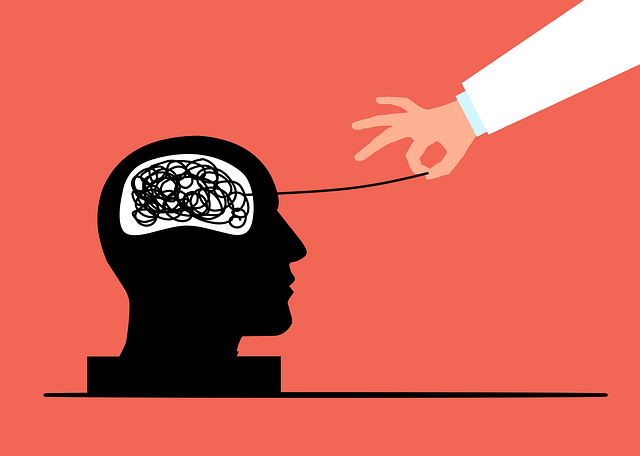Emotional intelligence (EI) is a powerful tool for healing and growth, particularly highlighted by Broomfield Domestic Violence Therapy. By recognizing and managing emotions, both personal and interpersonal, EI fosters understanding and empathy, breaking unhealthy relationship patterns and rebuilding trust. Mindfulness meditation, a key EI component, enhances stress navigation and communication, strengthening personal connections. Building EI involves self-awareness, self-management, empathy, and social skills training, with practices like regular reflection and mindfulness meditation. These strategies are crucial for personal growth, healthy relationships, and effective communication, as sought by clients at Broomfield Domestic Violence Therapy.
Emotional intelligence (EI) is a powerful tool for personal growth and relationship building. Understanding EI and its profound impact on our connections can foster healthier, more fulfilling lives. This article guides you through essential aspects of enhancing emotional intelligence, including self-awareness, self-management, empathy, and social skills. By implementing these strategies, individuals can navigate relationships with greater ease, ultimately reducing conflict—a key focus for Broomfield Domestic Violence Therapy.
- Understanding Emotional Intelligence and its Impact on Relationships
- Strategies for Enhancing Self-Awareness and Self-Management
- Practicing Empathy and Social Skills for Effective Communication
Understanding Emotional Intelligence and its Impact on Relationships

Emotional intelligence (EI) is the ability to recognize, understand, and manage one’s own emotions as well as perceive, interpret, and respond appropriately to the emotions of others. It’s more than just being empathetic; it involves self-awareness, social skills, and the capacity for effective communication. In the context of Broomfield Domestic Violence Therapy, EI plays a pivotal role in healing relationships damaged by abuse. By fostering understanding and empathy, therapy sessions can help individuals process their feelings, break unhealthy patterns, and rebuild trust.
The impact of EI on relationships extends beyond domestic settings. Mental Health Education Programs Design that incorporate emotional intelligence training often see improvements in workplace dynamics, community interactions, and personal connections. Similarly, Mental Wellness Podcast Series Production focused on mindfulness meditation—a key component of EI development—can enhance individuals’ ability to navigate stress, improve their overall mental health, and strengthen relationships by promoting better communication and deeper understanding.
Strategies for Enhancing Self-Awareness and Self-Management

Building emotional intelligence (EI) is a powerful tool for personal growth and healthy relationships. A key aspect of EI development focuses on enhancing self-awareness and self-management, which forms the foundation for effective communication and understanding of others. Individuals seeking to improve their EI can employ various strategies. One such approach is engaging in regular self-reflection practices. This involves taking time to introspect, identify emotions, and understand their triggers. For instance, one might reflect on reactions during a challenging conversation, recognizing anger or defensiveness, and exploring the underlying causes.
Broomfield Domestic Violence Therapy offers valuable resources for those aiming to cultivate EI. Through therapy sessions, individuals can learn self-care practices that promote emotional regulation. This includes techniques like mindfulness meditation, which helps stay grounded in the present moment, allowing for better management of intense emotions. Additionally, Social Skills Training and Empathy Building Strategies taught in these programs enable clients to develop a deeper understanding of their feelings and those of others, fostering more empathetic connections.
Practicing Empathy and Social Skills for Effective Communication

Practicing empathy is a cornerstone of emotional intelligence. It involves understanding and sharing the feelings of others, fostering deeper connections and more meaningful conversations. By attuning to another person’s emotions, we can respond with genuine care rather than simply offering superficial solutions. This skill is essential for effective communication, which, in turn, strengthens relationships—a key benefit sought by many clients at Broomfield Domestic Violence Therapy.
Developing strong social skills complements empathy by enhancing our ability to navigate interactions with others. Active listening, clear and respectful communication, and the ability to manage conflicts constructively are all part of this process. These communication strategies not only improve our personal relationships but also contribute to a sense of confidence boosting and overall well-being. Incorporating self-care practices into our daily routines can further support these efforts, ensuring that we approach interactions with emotional balance and clarity.
Building emotional intelligence is a transformative journey that can greatly enhance relationships, as demonstrated by research from Broomfield Domestic Violence Therapy. By understanding and managing our own emotions (self-awareness and self-management), practicing empathy, and honing social skills, we can foster deeper connections and navigate interpersonal interactions with greater ease. These strategies are not only beneficial for personal growth but also have a profound impact on our overall well-being and the health of our relationships.













